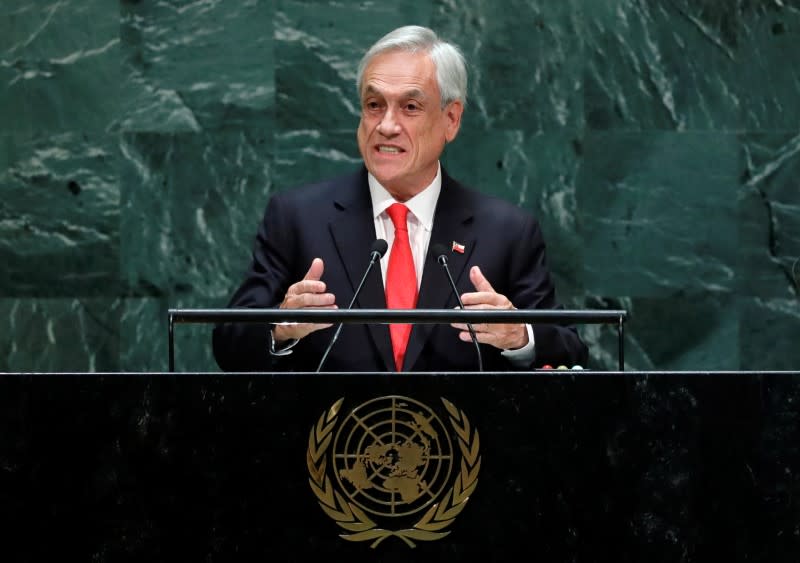Chile's Pinera proposes reform of pension system that has fueled protests

By Fabian Cambero
SANTIAGO (Reuters) - Chilean President Sebastian Pinera said on Wednesday that he will send a bill to Congress this week to reform the country's pension system, which leaves many retirees living in poverty and has been one of the main complaints of protesters in months of demonstrations.
In a radio and television broadcast, Pinera said he will propose a 6% increase in the pension contribution per worker.
Chile's pension system is a defined contribution scheme in which workers pay at least 10% of their wages each month to for-profit funds, called the Pension Fund Administrators (AFPs). The proposed adjustment implies a 3% increase in the employer's contribution.
In addition, employers would contribute another 3% to a state fund that would go toward improving current and future pensions.
The pension system and the AFPs have been harshly criticized in protests that began in mid-October and have left at least 27 people dead, thousands arrested and swaths of property damaged.
Many Chileans live on pensions that are significantly lower than the minimum wage, even if they have worked for most of their lives.
Pinera said the reform would mean that no pensioner will now fall below the poverty line and no one who has paid into the pension system for more than 30 years will be living on amounts below the present minimum wage.
"This new reform represents a structural change and creates a new pension system," Pinera said, adding that it will benefit a million pensioners.
Pinera, whose brother introduced the present system during the era of Augusto Pinochet, said soon after the protests began that he would increase the ambition of an existing pension reform bill making its way through Congress.
Pinera said that reform also opens the opportunity for new pension bodies to compete with the criticized AFPs.
In his address on Wednesday, Pinera said the reform would imply a "significant" cost for the state, without disclosing the figures.
(Reporting by Fabian Cambero; additional reporting by Aislinn Laing; writing by Cassandra Garrison; Editing by Leslie Adler)

